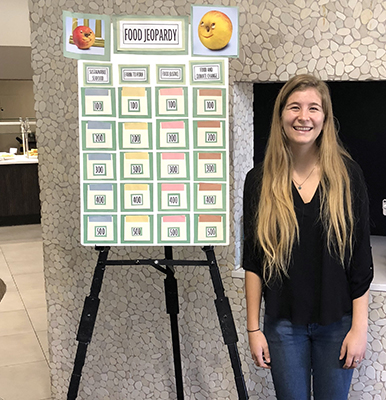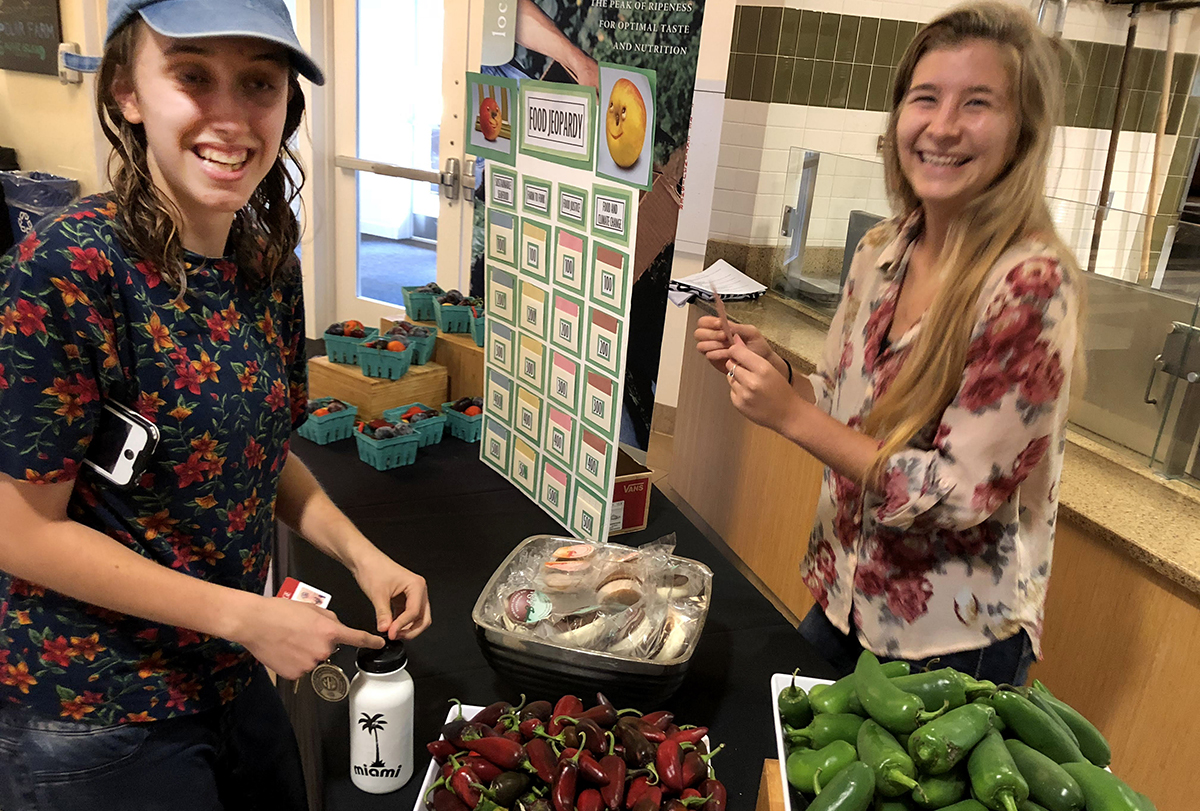“I’ll Take Food Justice for 400, Alex!”
Tabling in a café is a great way for us Fellows to engage with students who might not ordinarily think about food issues. But as anyone who has ever tabled knows too well, tabling can sometimes be a little awkward. It can be tough to tell if the students are interested in what you are trying to say. Or maybe students want to engage, but they don’t know what to ask.

Fellow Shannon Tivona and her Food Jeopardy game
So I decided to come up with the questions for them!
It’s game I call Food Jeopardy. Using materials from the local second-hand craft store here in Portland, OR, and my DIY skills, I constructed a large board. There are four categories: Food Justice, Sustainable Seafood, Farm to Fork, and Food and Climate Change. Each category has five questions that get harder as they go from 100 to 500. The questions were adapted from a Food Trivia game that Manager of Strategic Initiatives Nicole Cardwell developed in her days as a Fellow. Each question is glued to a notecard that sits in a pocket on the board, made from old library-card book pockets.
As students come by the table, they’re invited to pick a question. If they get the question right — or are willing to engage in discussion about why they got it wrong — they get a prize! The point values don’t determine their prize, just their level of personal challenge, so they can play at whatever level they feel comfortable. The questions range from easy, such as “Name one reason that eating local is important” to much more difficult, for example, “Of all the antibiotics sold in the United States, what percent are fed to farm animals that are not sick?” (For such tricky questions, I provide multiple choice answers.)

Shannon and a Reed College student play Food Jeopardy
So far, I have played Food Jeopardy with students of Reed College and Lewis & Clark College, both in Portland. Each time, the students competed for yummy ice cream prizes generously donated by the Bon Appétit team. At first, the students were hesitant, not really knowing how to react to this big Jeopardy board in the middle of their café. However, as soon as the first student returned to their table with their ice cream, I could be sure the rest of the table would soon come up to play.
Students were excited to learn new things and even more excited to show off their knowledge to friends. Several students who had already participated would bring friends up with them and coach them through the questions they selected. From there they were hooked, some even staying to answer multiple questions just for fun. Even when I ran out of prizes, they still wanted to keep playing!
Getting information to students about difficult and important food issues can be challenging. It turns out a little healthy competition (and perhaps some ice cream) is all you need.